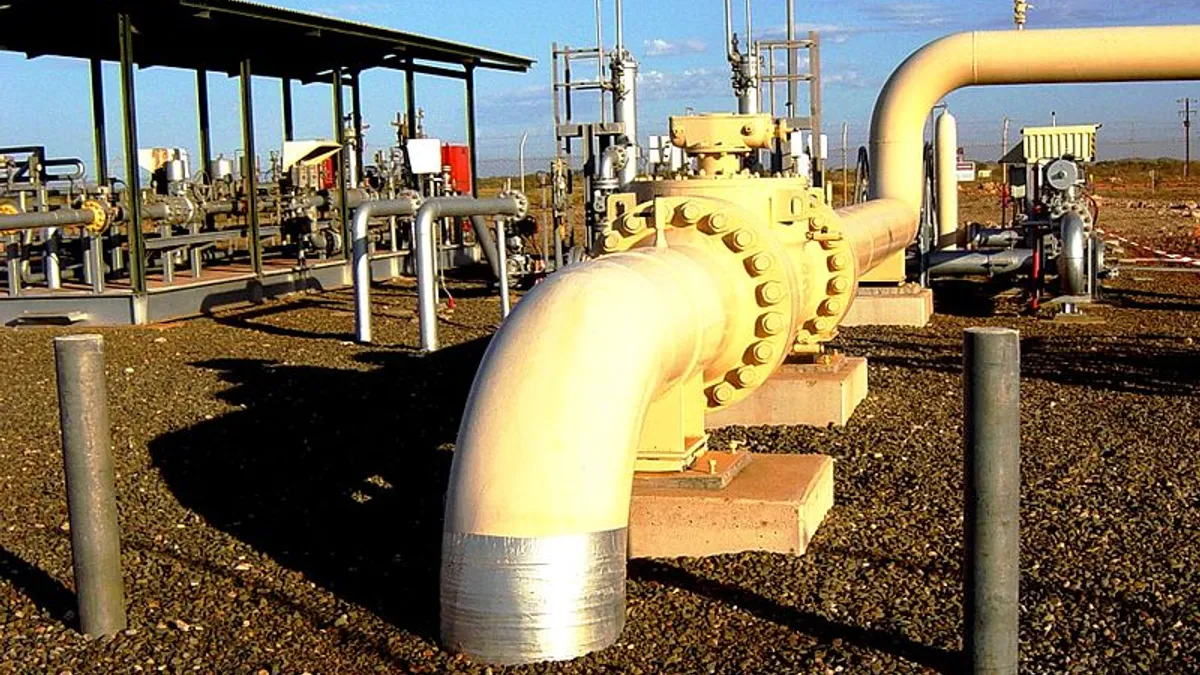Dive Brief:
- Dominion Energy, Duke Energy, Piedmont Natural Gas and AGL Resources have filed an application with the Federal Energy Regulatory Commission (FERC) to approve a 564-mile gas system, the Atlantic Coast Pipeline, designed to boost natural gas supplies along the east coast.
- If approved by FERC, construction could begin next year with an in-service date targeted for late 2018.
- Backers believe the project will boost energy reliability and support jobs, and they say the governors of West Virginia, Virginia and North Carolina have already signed on to support the project.
Dive Insight:
Four energy companies have proposed a new pipeline system for the East Coast, designed to move natural gas supplies from West Virginia to North Carolina. The application runs 30,000 pages, and developers say they considered more than 3,000 miles of potential routes and made hundreds of route adjustments based on discussions with landowners, public officials and others.
The system would have a capacity of 1.5 million dekatherms/day and would cost $5.1 billion to develop.
"The Atlantic Coast Pipeline is essential to meeting the clean energy needs of Virginia and North Carolina, and has significant benefits for West Virginia as well," said Diane Leopold, president of Dominion Energy, the business unit which will build and operate the project.
In a statement, Leopold said the project is designed to "enhance overall energy reliability in the region, bringing natural gas that will heat homes and power businesses, support thousands of jobs, and promote lower energy prices and economic development. It will be used to fuel a new generation of efficient power stations being built to achieve future federal and state environmental regulations."
According to ACP, the project has support from West Virginia Gov. Earl Ray Tomblin, Virginia Gov. Terry McAuliffe and North Carolina Gov. Pat McCrory.
The proposed pipeline has faced stiff opposition in southern Virginia, forcing Dominion Energy to locate an alternative route circumventing the two counties with the strongest opposition earlier in May.
Concerns over the impact to the land without tangible benefits for landowners in the pipeline's path had fueled the opposition.
Supporters say consumers and businesses in Virginia and North Carolina could save an estimated $377 million annually in energy costs, once the project is complete. And more than 2,200 full-time, permanent jobs could also be created in the two states because of the lower energy prices, once businesses are able to reinvest energy savings in growth.















